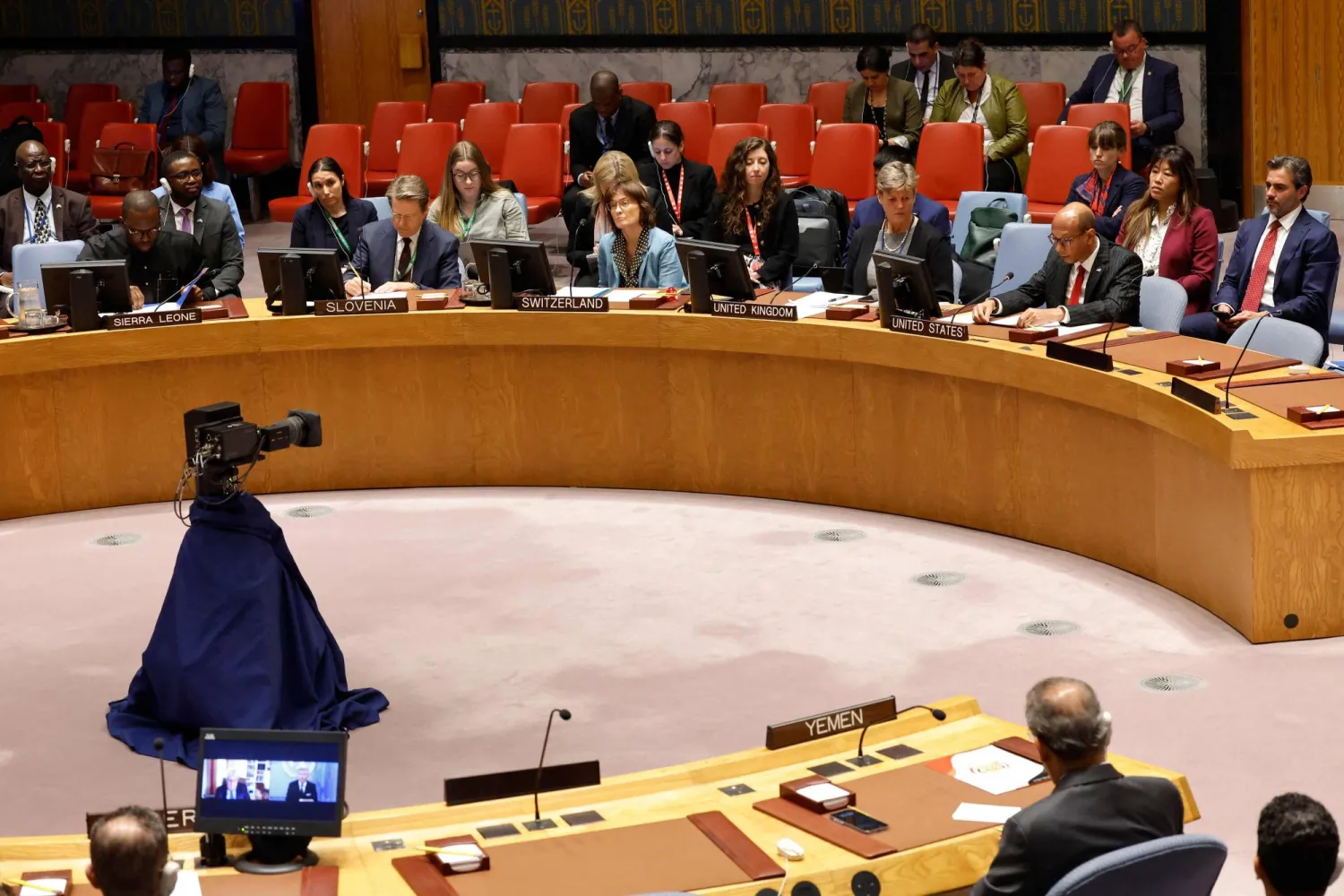The United States called on Iran on Monday to halt its transfer of an “unprecedented” amount of weaponry to Yemen’s Houthi militias, enabling their fighters to carry out “reckless attacks” on ships in the Red Sea and elsewhere.
US deputy ambassador Robert Wood told the UN Security Council that if it wants to make progress toward ending the civil war in Yemen, it should collectively “call Iran out for its destabilizing role and insist that it cannot hide behind the Houthis.”
He said there is extensive evidence that Iran is providing advanced weapons, including ballistic and cruise missiles, to the Houthis in violation of UN sanctions.
“To underscore the council’s concern regarding the ongoing violations of the arms embargo, we must do more to strengthen enforcement and deter sanctions violators,” Wood said.
The Houthis say their attacks on shipping in the Red Sea and Gulf of Aden are aimed at pressuring Israel to end its war with Hamas in Gaza.
The Houthis have launched more than 50 attacks on shipping, seized one vessel and sunk another since November, the US Maritime Administration said late last month.
Hans Grundberg, the UN special envoy for Yemen, warned the council that “hostilities continue,” even though there has been a reduction in attacks on commercial and military vessels in the Red Sea, Gulf of Aden and the Indian Ocean, as well as a reduction in the number of US and British airstrikes on targets in Yemen.
Russian Ambassador Vassily Nebenzia told the council that the Israeli announcement on May 6 that it was starting its military operation in Gaza’s southern city of Rafah, where 1.2 million Palestinians had sought safety, ratcheted up the spiral of escalation in the region “another notch further.”
“There’s no doubt that this will have an impact on the situation in Yemen’s surrounding waters,” he said, noting the Houthis’ opposition to Israeli attacks that harm Palestinian civilians.
“We call for a swift cessation of the shelling of commercial vessels and any other actions that hamper maritime navigation," Nebenzia added.
He sharply criticized the United States and its Western allies, saying their “totally unjustified aggressive strikes” in Yemen violate the UN Charter. He said they further complicate an already complex situation in the Red Sea.









